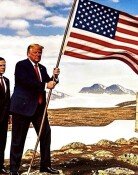Iraqi Economy, Except Oil Industry, to be Fully Open
Iraqi Economy, Except Oil Industry, to be Fully Open
Posted September. 22, 2003 22:54,
Iraq`s interim government, which is controlled by the US, publicly announced its bold economic reform plan, under which most of the industries, except oil, are open to foreigners, on September 21.
Developed countries, including the US, are looking at the plans positively, saying that the reform plan will pave the way for Iraq to join the world economy, together with the lifting of the UN economic sanctions that has lasted for 13 years in May.
However, there are also concerns over the many barriers for Iraq in suddenly introducing market economy and over the possibility of Iraq`s sovereignty being handed over to foreigners.
▽ Iraq`s economic reform plan = Iraqi interim government`s Finance Minister Kamel al-Kilani disclosed the new economic reform plan at the annual general meeting with the IMF and World Bank. The essence of the plan was that Iraq would attract large amount of foreign capital in privatizing Iraq`s public companies.
According to the reform plan, foreign companies can purchase and own Iraqi companies or establish joint ventures.
The market will be open for foreign banks as well. 6 foreign banks could buy 100% of Iraqi banks` shares during the next 5 years, and after 5 years, there will be no restrictions for foreign banks in entering the Iraqi market. Foreigners cannot buy land in Iraq, but could borrow it for 40 years in maximum.
Such reform plan is unprecedented, even compared to other countries in the Middle East, who are aggressively trying to induce foreign capital.
However, the oil industry, which is the core of the Iraqi economy, will continuously be controlled by the state.
▽ Shifting from planned economy to market economy = When the oil market was prosperous in 1980, Iraq`s GDP accounted for 47.6 billion dollars. However, with the Iran-Iraq war, which lasted for 8 years, and Iraq`s invasion into Kuwait in 1980, Iraq`s economy effectively collapsed with economic sanctions from the United Nations. GDP for 2001 is estimated to be 27.9 billion dollars.
The Saddam Hussein regime insisted on planned economy, as in a socialist country. State-owned industries, such as the oil industry, represented 75% of the total GDP. Listed companies were in fact state-owned companies that were only partially open to private capital.
After the sanctions were lifted at the UN Security Council in May, Iraq was included in the market once again, resuming oil exports in June. Many Western companies are expected to participate in the International Trade Fair, which will be held in Baghdad at the end of this year.
▽ Market economy for the Iraqi people, will it succeed? = Iraqi companies are strongly opposed to the economic reform plan. Wadi Surab, a member of the Iraqi Business Association said that, Iraqi companies are not capable of competing with (foreign) private companies, and that, Iraqi companies will be shaken from the root.
World Bank pointed out that, Iraq`s shifting to market economy will be followed by difficulties, and measures are necessary during the process in order to protect the socially weak.
According to some experts` predictions, the US is hoping to plant market economy and democracy in Iraq, as it did in Japan after the WWII, in order to utilize Iraq as a bridgehead; but unlike in Japan, where the restoration process was lead by the Japanese government and without the help from the foreigners, Iraq is seeking to privatize their industries and to attract foreign capital, therefore it is possible for foreigners to virtually share the loot.
Rae-Jeong Park Seung-Jin Kim ecopark@donga.com sarafina@donga.com





![[이진영 칼럼]잘난 韓, 못난 尹, 이상한 張](https://dimg.donga.com/c/138/175/90/1/wps/NEWS/IMAGE/2026/01/20/133198367.1.jpg)

